-
About
- Departments & Offices
-
Academics
- Public Health
- Biomedical Sciences
- Physician Assistant
- Special Master’s (MBS)
-
Admissions & Financial Aid
- Tuition & Fees
-
Student Experience
-
- Student Resources by Program
- Academic & Student Support
- Wellness & Wellbeing
- Student Life
- Events & Traditions
-
-
Research
- Research Labs & Centers
- Tufts University-Tufts Medicine Research Enterprise
-
Local & Global Engagement
- Pathway & Enrichment Programs
- Global Health Programs
- Community Engagement
Physician Assistant Program
Tufts University School of Medicine's top-ranked Physician Assistant (PA) Program, situated in a thriving health hub, provides access to cutting-edge resources and fosters innovation. With an interprofessional approach, students collaborate with peers across diverse health disciplines, preparing them to deliver comprehensive, patient-centered care.
| Length | Commitment | Format | Entry Terms |
|---|---|---|---|
25 MONTHS | FULL-TIME | ON-CAMPUS | SPRING |
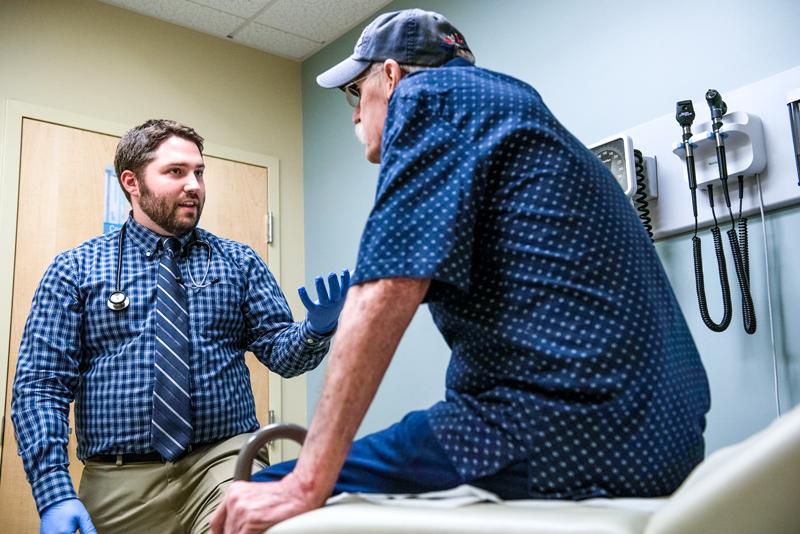
Experience a Rigorous Curriculum & Practical Training
Our program provides a comprehensive curriculum that combines foundational medical knowledge with practical clinical experience, nurturing critical thinking and patient-centered care among students. During the clinical year, students engage in hands-on care during supervised clinical practice rotations, carefully selected and assigned by the program. This integrated approach ensures graduates are well-prepared to deliver high-quality care across various medical fields, clinical settings, and to diverse patient populations.
Unlock the Benefits of a Top-Ranked Program in a Medical Hub
Situated in a top-tier medical school and bustling health hub, our program provides students with access to cutting-edge resources, state-of-the-art facilities, and the latest healthcare advancements. Students thrive in an innovative environment with strong clinical connections. Being part of Tufts University School of Medicine exposes students to various health-focused programs, fostering an interprofessional, interdisciplinary perspective. Collaborating with peers from diverse health disciplines equips students with invaluable insights into collaborative health care, ultimately preparing them to excel in delivering comprehensive, patient-centered care.

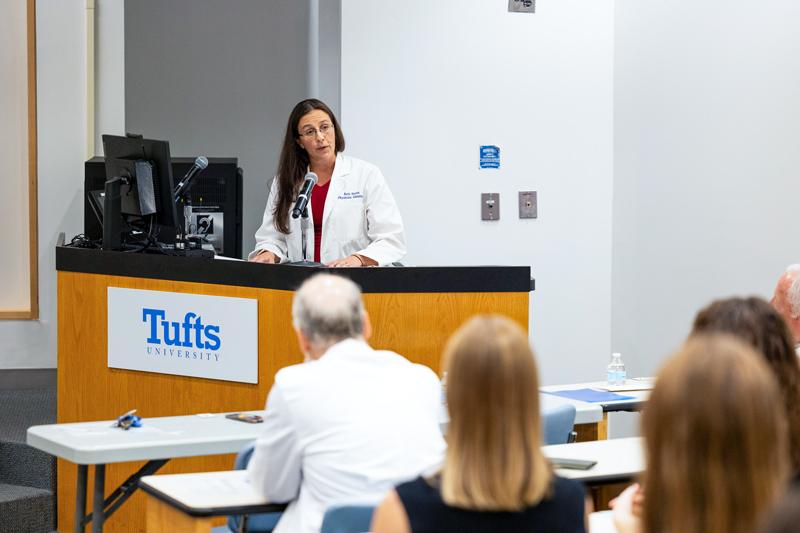
Learn from Accessible Expert Faculty Dedicated to Student Success
At the core of our program is a team of actively practicing, experienced practitioners dedicated to providing care in diverse medical settings. They offer invaluable real-world insights, personalized mentorship, and foster a supportive learning environment. With an open-door policy and emphasis on collaboration, our faculty and leadership cultivate an environment of personal and professional growth, ensuring students receive the guidance and support needed to excel in their PA journey.
Build Strong Connections
Our program prides itself on cultivating a vibrant and collaborative student community where peers come together to support, inspire, and learn from one another. Through initiatives like our peer mentorship program and engagement with the Tufts University Physician Assistant Student Society (TUPASS), students partake in community service, fundraising, and advocacy, enhancing their educational journey. With an emphasis on camaraderie and inclusivity, students forge meaningful connections and engage in collaborative initiatives, preparing them for the teamwork essential in health care.

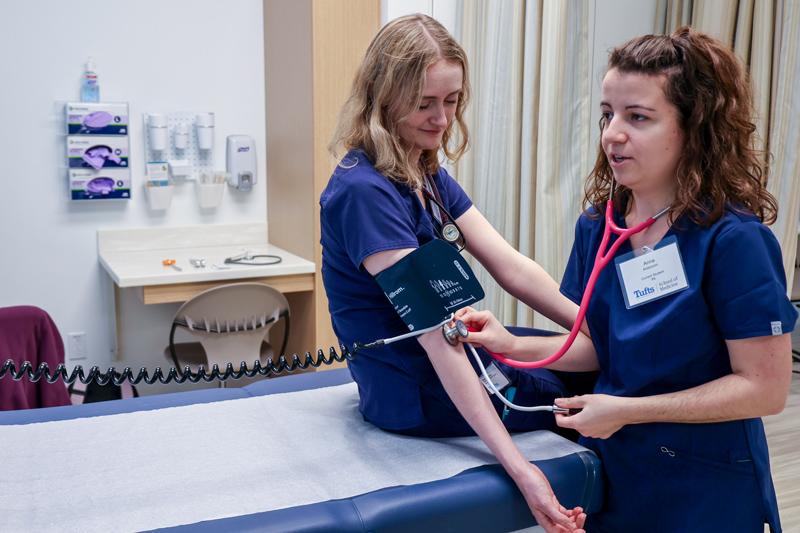
Prepare for Board Certification with Confidence
Our program consistently boasts exceptional first-time PANCE exam pass rates, which is a testament to our unwavering commitment to preparing graduates for the rigors of the physician assistant profession. Our tailored approach to Board Review Preparation customizes each cohort’s learning experience, underscoring our commitment to student success in the classroom and workforce.
Join an Empowering Career Path with Societal Impact
Our Career Services team works with PA students on resume design, interviewing skills, and negotiating offers. The team actively develops employer relationships to support students in finding their first job. Graduates of our program secure fulfilling positions in diverse medical specialties, along with competitive salaries. Additionally, our program instills a strong sense of social responsibility, encouraging students to serve in underserved communities and address widespread healthcare access challenges, thus contributing to accessible, equitable, and competent care for all.
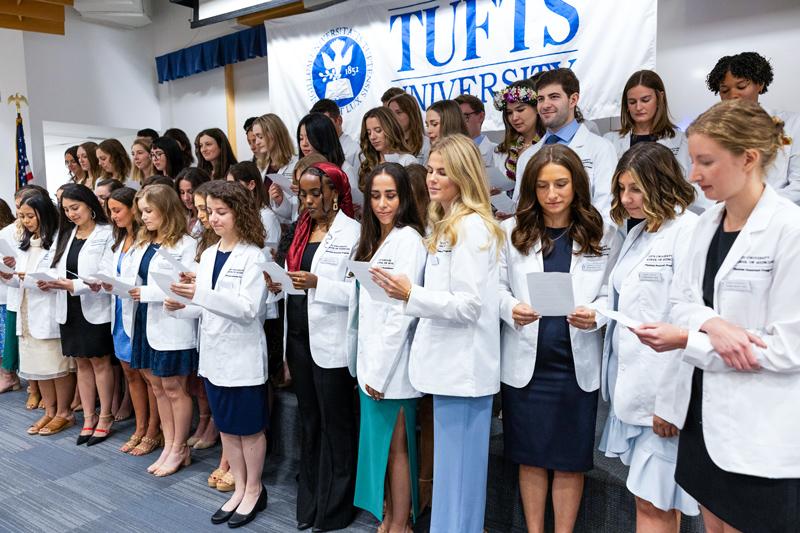
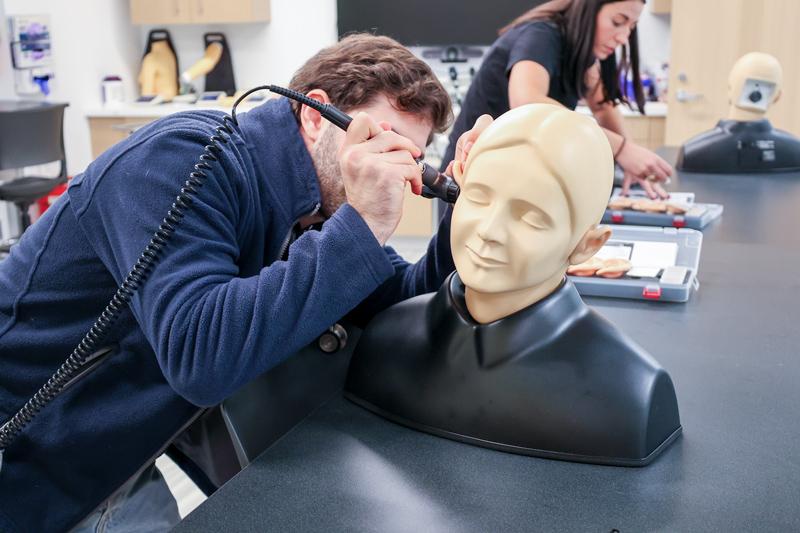
Enjoy State-of-the-Art Resources
Experience state-of-the-art facilities, including the Anatomy Lab and recently upgraded Clinical Skills and Simulation Center. These spaces are equipped with cutting-edge technology for immersive learning experiences. From working with human cadavers to honing diagnostic skills in peer scenarios, and mastering techniques on high-fidelity mannequins, our program ensures comprehensive skill development. Additionally, students benefit from full access to the extensive resources of the Hirsh Health Sciences Library, which houses a wealth of digitized medical journals and electronic textbooks.
Expand Your Opportunities with a PA/MPH Dual Degree
Enhance your clinical-based PA training with a comprehensive understanding of public health through our optional combined PA/MPH dual degree program. Delve into topics such as epidemiology, community health needs, and health education to broaden your skill set. Graduate with two degrees, equipping yourself to make an impact across various disciplines.
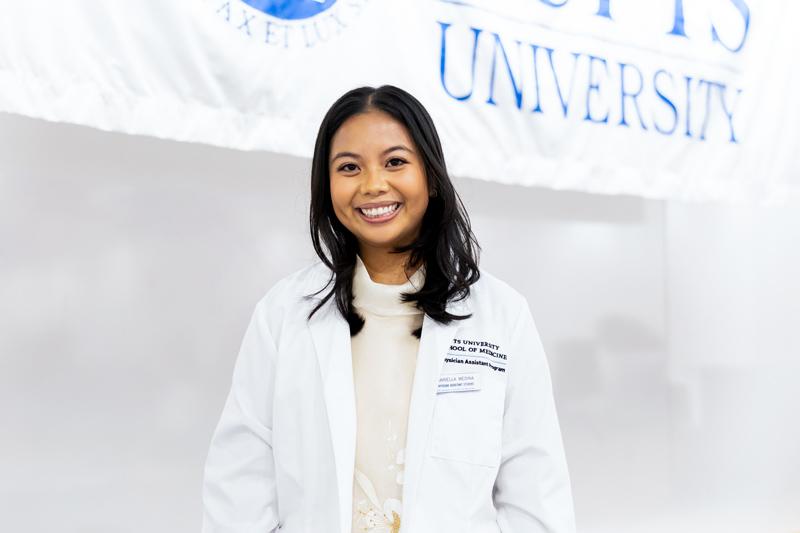
Program Details
-
Our Mission
The mission of the Tufts University School of Medicine Physician Assistant Program is to educate a diverse body of students in a student-centered, inclusive, and collaborative environment. The Tufts PA community will have a positive impact on and meaningfully engage in all aspects of the health care continuum, including disease prevention and management, health promotion and maintenance, and end of life care. As patient advocates, Tufts PA students and faculty will be integral members of the health care team, improving access to care for all populations and across all communities they serve.
The Program fulfills this mission with a commitment to the following values:
- Competence: Use medical knowledge and technical skills to provide patient-centered care that is safe, equitable, and evidence-based, all while working cohesively on interdisciplinary health care team
- Humanism: Enhance compassion in caring for patients and demonstrate responsibility and accountability through active community engagement and volunteerism
- Cultural humility: Engage in self-reflection and lifelong learning involving self-awareness of personal and cultural biases as well as awareness and sensitivity to significant cultural differences of others
- Professionalism: Act in accordance with the highest standards of integrity through the demonstration of respect, honesty, compassion, personal accountability, collegiality, and teamwork.
- Social responsibility: Serve and advocate for all people in diverse communities and clinical settings, recognizing the impact social determinants of health have on the health of our patients.
Program Goals
- Goal #1. Prepare graduates with medical knowledge and skills to be competent entry-level PAs in clinical practice
- Goal #2. Provide PA students with opportunities to practice team-based care through interprofessional education
- Goal #3. Prepare graduates to be active in community engagement and volunteerism
- Goal #4. Assist new graduates in securing employment in a variety of clinical settings to meet workforce needs
-
The aim of the School of Medicine PA program is to develop highly competent, intellectually curious, and caring physician assistants. The following competencies were created after review of the Core Competencies for New Physician Assistant Graduates which can be found online.
Tufts University School of Medicine Physician Assistant Competencies
Patient-centered Practice Knowledge Competency (PCPK): The PA program must ensure that a student has the medical knowledge, clinical and technical skills, to the satisfaction of the principal faculty through evaluation of summative assessments, to be able to:
- PCPK 1. Demonstrate core medical knowledge needed to care for patients
- PCPK 2. Discern among acute, emergent, and chronic disease states
- PCPK 3. Obtain a relevant medical history that is specific to the clinical setting
- PCPK 4. Perform a problem-focused physical examination
- PCPK 5. Interpret the results of commonly used diagnostic procedures and tests
- PCPK 6. Create a differential diagnosis, develop and implement patient management plans
- PCPK 7. Provide patient education aimed at disease prevention and health maintenance
- PCPK 8. Demonstrate routine technical skills needed for entry level PA practice
Society and Population Health Competency (SPH): The PA program must ensure that a student will, to the satisfaction of the principal faculty through evaluation of summative assessments, be able to:
- SPH 1. Apply information on individual variations in social determinants of health when making diagnostic and treatment decisions, with appropriate sensitivity to the cultural needs of patients.
Health Literacy and Interpersonal Communication Competency (HLC): The PA Program must ensure that a student will, to the satisfaction of the principal faculty through evaluation of summative assessments, be able to:
- HLC 1. Engage in effective communication with all those concerned in the patient’s healthcare, including the patients and their patient’s family.
- HLC 2. Report clinical data by obtaining and communicating the clinical facts in an organized manner that demonstrates understanding and synthesis of the findings.
- HLC 3. Present information and ideas in an organized and clear manner to educate or inform others.
- HLC 4. Demonstrate the ability to write appropriate clinical notes and communicate effectively with the health care team.
Professional Behaviors Competency (PBC): The PA Program must ensure that a student will, to the satisfaction of the principal faculty through evaluation of summative assessments, be able to:
- PBC 1. Demonstrate respect for and response to individual patient preferences, needs, and values
- PBC 2. Demonstrate professional behavior during patient encounters
- PBC 3. Demonstrate the ability to establish rapport with patients
Interprofessional Collaborative Practice Competency (ICPC): The PA Program must ensure that a student will, to the satisfaction of the principal faculty through evaluation of summative assessments, be able to:
- ICPC 1. Recognize the role of other health care providers in providing patient care
- ICPC 2. Identify appropriate referrals and community resources to meet patients’ social and medical needs
Self-assessment Competency (SA). The PA Program must ensure that a student will, to the satisfaction of the principal faculty through evaluation of summative assessments, be able to:
- SA1. Demonstrate the ability to reflect on professional and clinical performance, identifying areas of strength and opportunities for improvement
- SA 2: Demonstrate the ability to create plans to improve
-
The ARC-PA requires programs to publish their attrition table for prospective and enrolled students.
-
The Tufts University School of Medicine Physician Assistant Program is an accredited program through the Accreditation Review Commission on Education for the Physician Assistant, Inc. (ARC-PA). The program’s accreditation history can be viewed on the ARC-PA website at https://www.arc-pa.org/wp-content/uploads/2025/06/Accreditation-History-Tufts-191.pdf.
The Accreditation Review Commission on Education for the Physician Assistant (ARC-PA) has granted Accreditation-Continued status to the Tufts University School of Medicine Physician Assistant Program sponsored by Tufts University. Accreditation-Continued is an accreditation status granted when a currently accredited program is in compliance with the ARC-PA Standards.
Accreditation remains in effect until the program closes or withdraws from the accreditation process or until accreditation is withdrawn for failure to comply with the Standards. The approximate date for the next validation review of the program by the ARC-PA will be 2026 March. The review date is contingent upon continued compliance with the Accreditation Standards and ARC-PA policy.
For further information, visit the ARC-PA website.
-
The Master of Science – Physician Assistant Program is designed to meet the educational requirements for the State of Massachusetts. The Program meets the educational requirements for professional licensure as a Physician Assistant in all 50 states.
-
View insights into the performance of our students on the Physician Assistant National Certifying Exam (PANCE). Below is the link to the official NCCPA PANCE Summary Report, which offers a comprehensive breakdown of our program’s results.
Connect With Us
Learn More - Request Information
To learn more and receive emails about the Tufts PA program, fill out our form. If you have any questions, please contact us at pa.admissions@tufts.edu—we are always happy to hear from you!
Register for Our Upcoming Information Session
Our virtual information sessions provide an overview of the PA program, degree prerequisites, and the admissions process and requirements. Our upcoming session will take place on Tuesday, March 31 from 4-6pm ET.
Support Tufts PA Students!
Tufts PA Scholarship Fund
Due to the continued growth of our program we are looking to build this scholarship fund in order to provide financial assistance for future applicants.
Tufts PA Program Advancement
Contributions to this fund will be used to strengthen areas of programmatic need, such as the growth of simulation education, providing housing for clinical rotations in high-need areas, and student conference and travel funds.